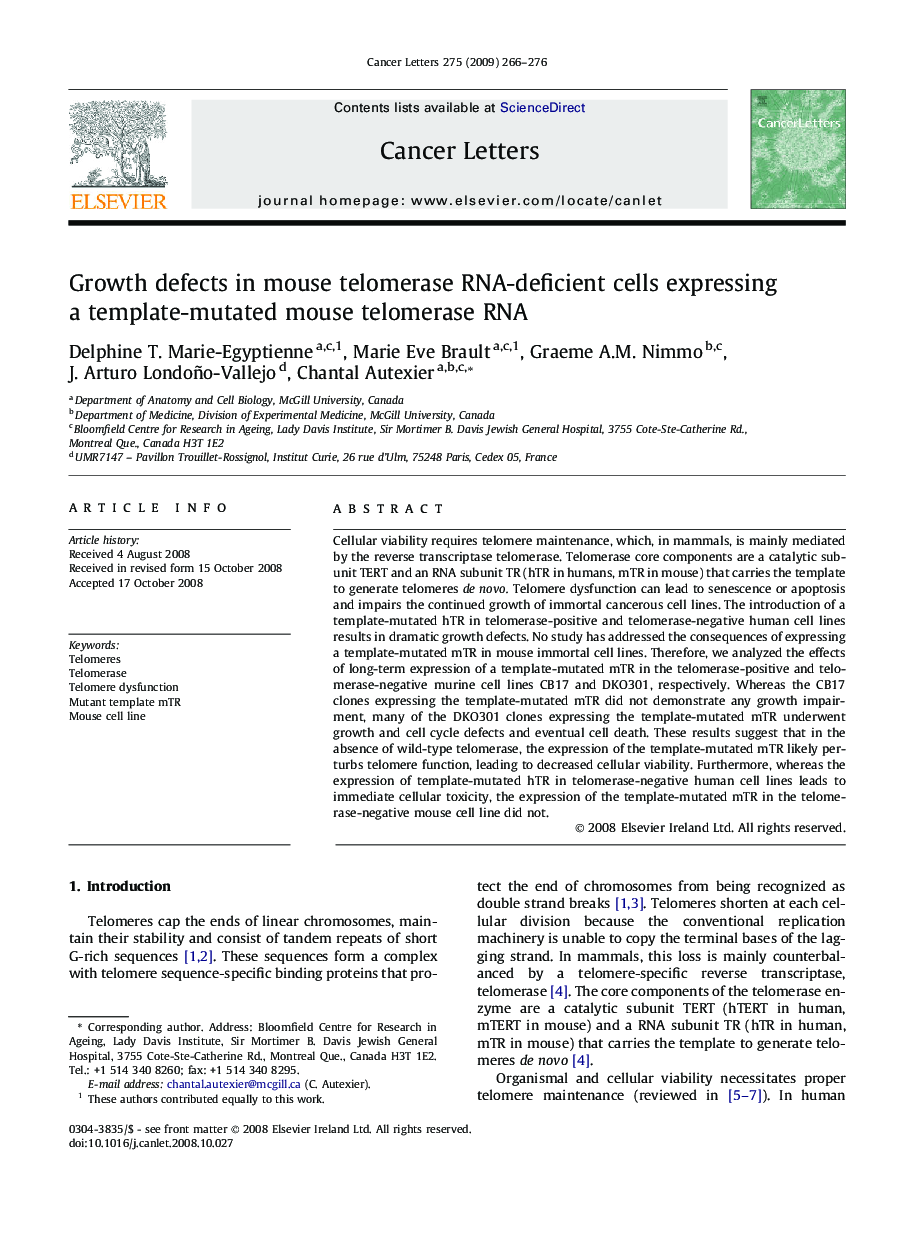| Article ID | Journal | Published Year | Pages | File Type |
|---|---|---|---|---|
| 2114545 | Cancer Letters | 2009 | 11 Pages |
Cellular viability requires telomere maintenance, which, in mammals, is mainly mediated by the reverse transcriptase telomerase. Telomerase core components are a catalytic subunit TERT and an RNA subunit TR (hTR in humans, mTR in mouse) that carries the template to generate telomeres de novo. Telomere dysfunction can lead to senescence or apoptosis and impairs the continued growth of immortal cancerous cell lines. The introduction of a template-mutated hTR in telomerase-positive and telomerase-negative human cell lines results in dramatic growth defects. No study has addressed the consequences of expressing a template-mutated mTR in mouse immortal cell lines. Therefore, we analyzed the effects of long-term expression of a template-mutated mTR in the telomerase-positive and telomerase-negative murine cell lines CB17 and DKO301, respectively. Whereas the CB17 clones expressing the template-mutated mTR did not demonstrate any growth impairment, many of the DKO301 clones expressing the template-mutated mTR underwent growth and cell cycle defects and eventual cell death. These results suggest that in the absence of wild-type telomerase, the expression of the template-mutated mTR likely perturbs telomere function, leading to decreased cellular viability. Furthermore, whereas the expression of template-mutated hTR in telomerase-negative human cell lines leads to immediate cellular toxicity, the expression of the template-mutated mTR in the telomerase-negative mouse cell line did not.
